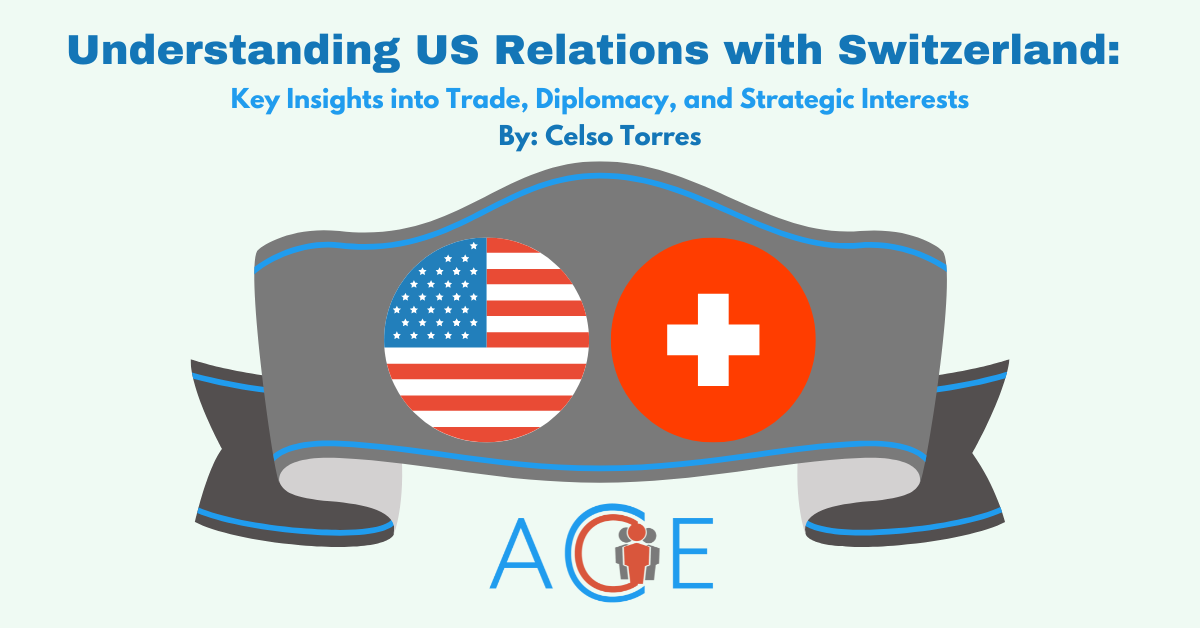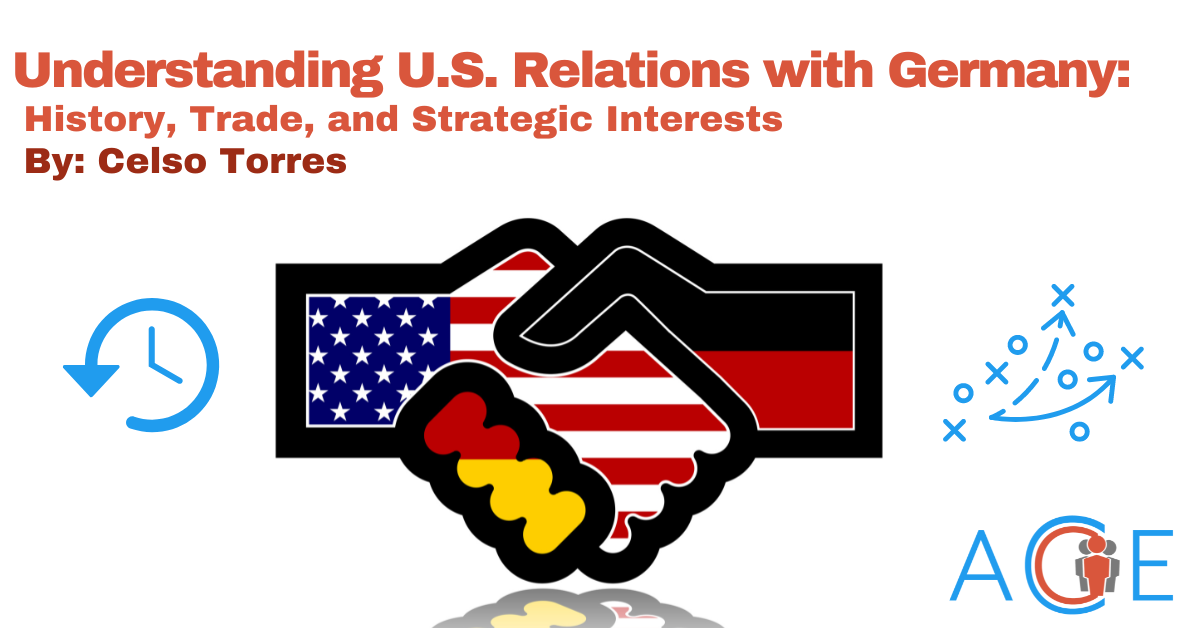Introduction
Switzerland, known for its neutrality, abstains from military alliances and international conflicts, playing a significant role in global peace and diplomacy. It frequently hosts diplomatic conferences on international humanitarian law. Over time, shared characteristics in their political systems and joint efforts in international organizations have strengthened relations between the United States and Switzerland. Currently, the United States stands as Switzerland’s primary trading partner, accounting for 16.3% of its total exports. Therefore, the relationship between the U.S. and Switzerland is vital for the economic development, security, and maintenance of global peace for both nations.
Quick Facts
- Population: 8.6 million
- Capital: Bern
- Official Language: German, French, Italian, and Rumantsch
- System of Governance: Semi-Direct Democratic Federal Republic
- President: Alain Berset
- GDP: US$ 807.71 billion (2022)
- Currency: Swiss Franc
History of U.S.─Switzerland Relations
Despite their history of close cooperation, certain factors have strained the relationship between the United States and Switzerland in the past. In the 1990s, tensions arose due to the World Jewish Congress lawsuit against Swiss banks regarding the handling of stolen Nazi gold during World War II. The U.S. argued that Switzerland, as a neutral country, had inadvertently aided the Nazi regime, thereby prolonging the war. Switzerland disputed this claim, leading to heightened tensions. Additionally, Swiss banking secrecy has been a contentious issue, with U.S. authorities alleging that it hampers oversight and facilitates money laundering schemes. To address these challenges, the United States and Switzerland established the U.S.-Swiss Joint Economic Commission (JEC) in 2000. This commission focuses on fostering trade relations, combating money laundering and terrorism, and protecting intellectual property rights. Subsequent agreements, such as the Enhanced Political Framework and Trade and Investment Cooperation Forum, have further enhanced the JEC’s mandate.
In 2013, Switzerland signed the Foreign Account Tax Compliance Act (FATCA) to ensure that Swiss banks operating in the U.S. comply with surveillance and accountability measures. This requires Swiss banks to report offshore accounts to the Internal Revenue Service.
Furthermore, in 2019, the U.S. Senate approved the Double Taxation Treaty with Switzerland, aimed at promoting entrepreneurship and facilitating the creation of new businesses in both countries, thereby fostering employment and new industries.
Despite past disagreements, both nations remain committed to spreading democratic values and institutions globally. Their cooperation extends to providing economic development assistance and humanitarian relief to developing nations.
Strategic Interests
- Trade: In 2021, Switzerland emerged as the seventh-largest foreign investor in the United States, injecting a total of $315 billion into the country. Trade between the two countries primarily takes the form of services, with the US exporting business services, financial services, and licenses, and importing licenses, information services, and insurance services.
- Security: As a neutral nation, Switzerland plays a diplomatic role in mediating current international conflicts. Since 1980, Switzerland has served as the protecting power between the United States and Iran, facilitating open lines of communication and providing consular and diplomatic assistance to Iranian citizens in the U.S. and Americans in Iran. Presently, Switzerland has offered to assume a similar role in the Russo-Ukrainian War, although the Russian government declined this offer. Switzerland is a valued partner of NATO and engages in numerous operations mandated by the United Nations (UN) and the Organization for Security and Co-operation in Europe (OSCE). However, due to Swiss law prohibiting participation in combat operations for peace enforcement, all operations are manned by volunteers.
Neutrality
In 1920, the League of Nations formally acknowledged Switzerland’s state of neutrality, which prohibits the country from participating in international wars, supplying mercenary troops to belligerent states, and favoring any belligerent state in the exportation of war material. However, this neutrality law does not extend to internal conflicts and does not apply to military operations authorized by the United Nations Security Council.
Currently, Switzerland’s neutrality is under scrutiny due to the Russian invasion of Ukraine. The nation is restricted from sending weapons and ammunition to Ukraine as per its neutrality law. However, given the urgency of the situation, Swiss authorities are reassessing the centuries-old declaration of neutrality. Many politicians are exploring avenues to support Ukraine without violating Swiss neutrality laws.


